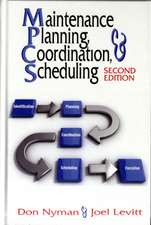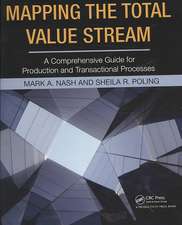Windows on a New World: The Third Industrial Revolution: Contributions in Drama and Theatre Studies,, cartea 88
Autor Joseph Finklesteinen Limba Engleză Hardback – 12 mar 1989
The First Industrial Revolution of the eighteenth century brought fundamental changes in the allocation of people, resources, and energy. In the Second Industrial Revolution, the revolutionary impact of automobiles, photography, electric power, and industrial chemicals made the United States a foremost world power. The Third Industrial Revolution begins with the information revolution brought about by the computer. Each decade since World War II has brought crucial developments in the areas of CAD/CAM, fiber optics, lasers, holography, biogenetics, bioagriculture, and telecommunications. The synergy of these new scientific/industrial areas will change our way of life for the next five decades and beyond.
"Windows on a New World" attempts to integrate some of these outstanding changes. Nine chapters, each written by a specialist in the field, deal with the most important topics relevant to microprocessors, lasers, telecommunications, manufacturing, management, biotechnology, and biophysics. Throughout the volume other important areas are mentioned such as holography, bioagriculture, ceramics, and superconductors. Each contribution shapes the basic science of the subject and then goes beyond to raise pertinent questions and suggest reverberations. The work ends with an overview of the consequences of these changes. Finkelstein's thesis is that the United States, richly endowed by nature, fashioned through its history and people the most successful economy the world has known. At the end of the nineteenth century it put into place both a private and an academic structure that gave it preeminence in the world of industrial product development. That world is changing. It is being rebuilt and restructured by new and incredibly important breakthroughs. Change and uncertainty are our constant companions. For those who see this as negatve and frightening, he argues that the industrial revolutions of the past lifted the world from poverty and offered new opportunities for millions of people. If this is the end of an era, it is also the beginning of a new one. A study that broadens our understanding of a complex series of developments, this extraordinary work will be read with interest by economists, politicians, scientists, historians and all others involved in the fields of business and technology.
Din seria Contributions in Drama and Theatre Studies,
- 38%
 Preț: 439.17 lei
Preț: 439.17 lei - 38%
 Preț: 437.31 lei
Preț: 437.31 lei - 38%
 Preț: 436.80 lei
Preț: 436.80 lei - 38%
 Preț: 437.67 lei
Preț: 437.67 lei - 24%
 Preț: 363.38 lei
Preț: 363.38 lei - 28%
 Preț: 461.35 lei
Preț: 461.35 lei - 38%
 Preț: 438.24 lei
Preț: 438.24 lei - 33%
 Preț: 322.97 lei
Preț: 322.97 lei - 38%
 Preț: 437.91 lei
Preț: 437.91 lei - 33%
 Preț: 320.01 lei
Preț: 320.01 lei - 38%
 Preț: 342.95 lei
Preț: 342.95 lei - 42%
 Preț: 300.86 lei
Preț: 300.86 lei - 38%
 Preț: 438.24 lei
Preț: 438.24 lei - 28%
 Preț: 438.17 lei
Preț: 438.17 lei - 38%
 Preț: 344.63 lei
Preț: 344.63 lei - 38%
 Preț: 406.07 lei
Preț: 406.07 lei - 24%
 Preț: 362.79 lei
Preț: 362.79 lei - 38%
 Preț: 436.99 lei
Preț: 436.99 lei - 35%
 Preț: 240.39 lei
Preț: 240.39 lei - 38%
 Preț: 436.80 lei
Preț: 436.80 lei - 26%
 Preț: 307.47 lei
Preț: 307.47 lei - 19%
 Preț: 491.79 lei
Preț: 491.79 lei - 38%
 Preț: 436.15 lei
Preț: 436.15 lei - 38%
 Preț: 436.80 lei
Preț: 436.80 lei - 28%
 Preț: 460.93 lei
Preț: 460.93 lei
Preț: 438.24 lei
Preț vechi: 708.00 lei
-38% Nou
83.85€ • 87.79$ • 69.39£
Carte tipărită la comandă
Livrare economică 05-19 aprilie
Specificații
ISBN-10: 0313263213
Pagini: 261
Dimensiuni: 156 x 234 x 16 mm
Greutate: 0.54 kg
Editura: Greenwood
Colecția Praeger
Seria Contributions in Drama and Theatre Studies,
Descriere
Windows on a New World attempts to integrate some of these outstanding changes. Nine chapters, each written by a specialist in the field, deal with the most important topics relevant to microprocessors, lasers, telecommunications, manufacturing, management, biotechnology, and biophysics. Throughout the volume other important areas are mentioned such as holography, bioagriculture, ceramics, and superconductors. Each contribution shapes the basic science of the subject and then goes beyond to raise pertinent questions and suggest reverberations. The work ends with an overview of the consequences of these changes. Finkelstein's thesis is that the United States, richly endowed by nature, fashioned through its history and people the most successful economy the world has known. At the end of the nineteenth century it put into place both a private and an academic structure that gave it preeminence in the world of industrial product development. That world is changing. It is being rebuilt and restructured by new and incredibly important breakthroughs. Change and uncertainty are our constant companions. For those who see this as negatve and frightening, he argues that the industrial revolutions of the past lifted the world from poverty and offered new opportunities for millions of people. If this is the end of an era, it is also the beginning of a new one. A study that broadens our understanding of a complex series of developments, this extraordinary work will be read with interest by economists, politicians, scientists, historians and all others involved in the fields of business and technology.












